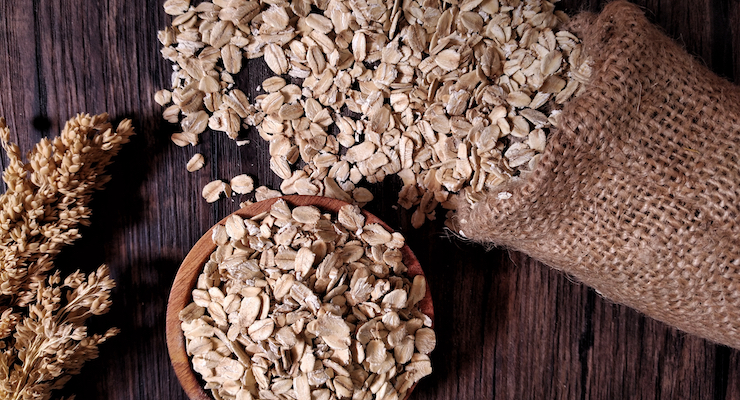12.03.21
A high intake of refined carbohydrates, such as those from white flour and white rice, along with a low intake of nutrient- and fiber-rich complex carbohydrates from whole grain sources, is linked to higher incidences of breast cancer in women, a newly-published study appearing in Nutrition found.
“Several risk factors including genetic, lifestyle, and dietary intake are related to breast cancer risk,” the authors of the study said. “There is growing evidence that intake of high glycemic index diet may also play a crucial role in the etiology of several cancers including breast cancer. This has been hypothesized that diet with a higher glycemic index could increase blood glucose and insulin concentrations which are both related with cancer development.”
In the present case-control study, researchers followed up on the dietary intakes of 461 Middle Eastern women who had pathologically-confirmed breast cancer within the past year, comparing the same information with 495 apparently healthy controls, providing both groups with a 168-item validated food frequency questionnaire. The authors of the study then calculated each participants’ glycemic index based on the fiber content of the carbohydrates the participants consumed, along with ratios of whole grains to total grains, and similar criteria. The researchers also analyzed glycemic loads of each participant’s diets, which are an estimate of how much food will raise a person’s blood glucose level after eating it.
“Compared to controls, cases were slightly older, had lower BMI, were older at first birth, and were more likely to have a family history of breast cancer,” the authors of the study said. “Subjects in the top quartile of glycemic index had lower intakes of total carbohydrate, solid carbohydrate, fiber, protein, fruits, vegetables, high fat dairy, low fat dairy, legumes, vitamins C, D, B6, B9, and B12 than those in the lowest quartile.”
A trend toward significant association was seen between GI and odds of breast cancer in the whole population after controlling for several potential cofounders, the authors said.
“A high fiber diet provides many health benefits including weight loss, lower cholesterol levels, and decreased insulin resistance,” the authors of the study concluded. “In addition, fiber can reduce circulating estrogen levels by changing the gut microbiota which can affect the reactivation of conjugated estrogens. Reabsorption of deconjugated estrogen influences estrogen metabolism, which is related with hormone-dependent cancers, such as breast cancer.”
Further, carbohydrate quality index is linked to inflammatory markers, and the antioxidant content seen in whole grains compared to refined grains could also be linked to the inhibition of cell apoptosis (programmed cell death), the authors noted.
“Several risk factors including genetic, lifestyle, and dietary intake are related to breast cancer risk,” the authors of the study said. “There is growing evidence that intake of high glycemic index diet may also play a crucial role in the etiology of several cancers including breast cancer. This has been hypothesized that diet with a higher glycemic index could increase blood glucose and insulin concentrations which are both related with cancer development.”
In the present case-control study, researchers followed up on the dietary intakes of 461 Middle Eastern women who had pathologically-confirmed breast cancer within the past year, comparing the same information with 495 apparently healthy controls, providing both groups with a 168-item validated food frequency questionnaire. The authors of the study then calculated each participants’ glycemic index based on the fiber content of the carbohydrates the participants consumed, along with ratios of whole grains to total grains, and similar criteria. The researchers also analyzed glycemic loads of each participant’s diets, which are an estimate of how much food will raise a person’s blood glucose level after eating it.
“Compared to controls, cases were slightly older, had lower BMI, were older at first birth, and were more likely to have a family history of breast cancer,” the authors of the study said. “Subjects in the top quartile of glycemic index had lower intakes of total carbohydrate, solid carbohydrate, fiber, protein, fruits, vegetables, high fat dairy, low fat dairy, legumes, vitamins C, D, B6, B9, and B12 than those in the lowest quartile.”
A trend toward significant association was seen between GI and odds of breast cancer in the whole population after controlling for several potential cofounders, the authors said.
“A high fiber diet provides many health benefits including weight loss, lower cholesterol levels, and decreased insulin resistance,” the authors of the study concluded. “In addition, fiber can reduce circulating estrogen levels by changing the gut microbiota which can affect the reactivation of conjugated estrogens. Reabsorption of deconjugated estrogen influences estrogen metabolism, which is related with hormone-dependent cancers, such as breast cancer.”
Further, carbohydrate quality index is linked to inflammatory markers, and the antioxidant content seen in whole grains compared to refined grains could also be linked to the inhibition of cell apoptosis (programmed cell death), the authors noted.




























